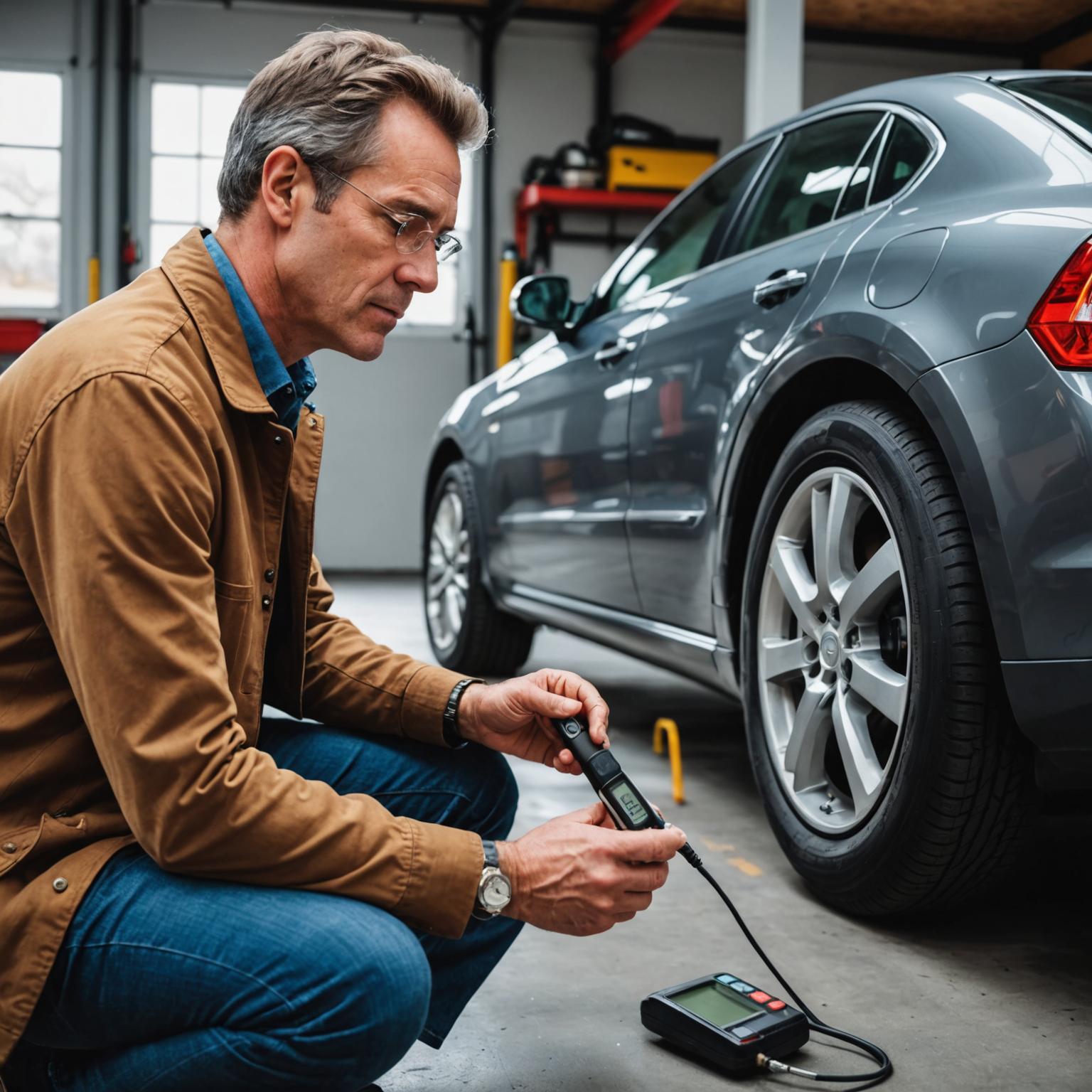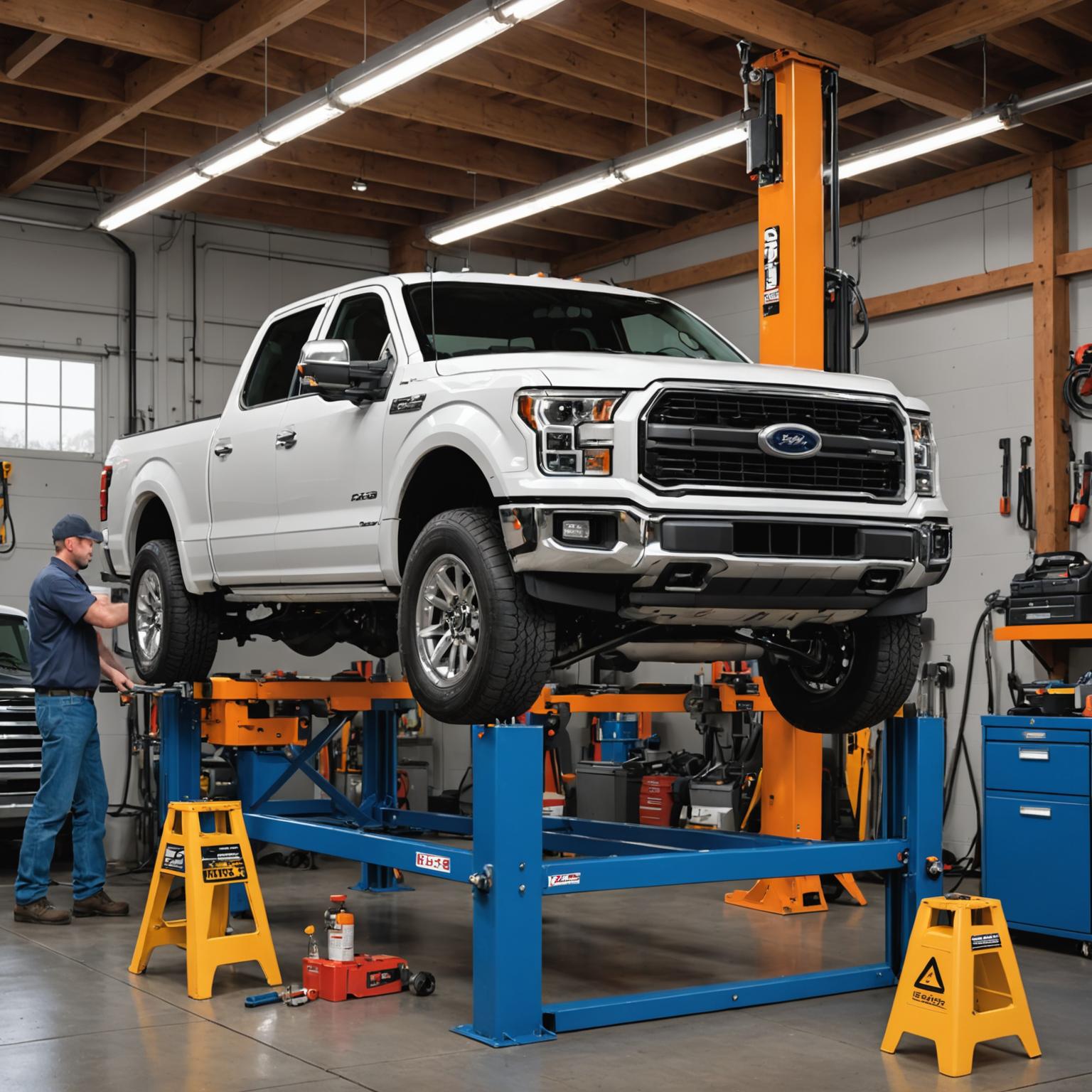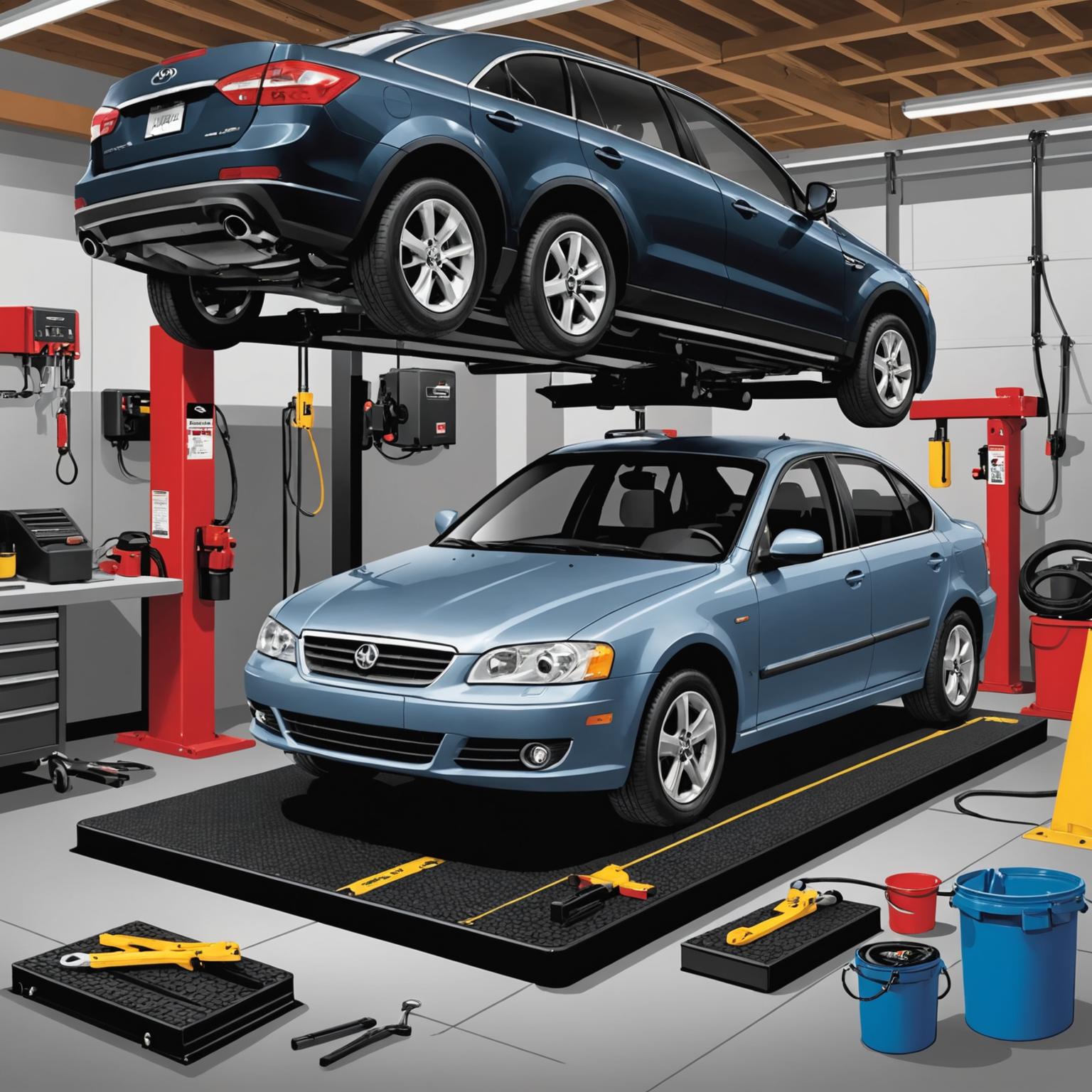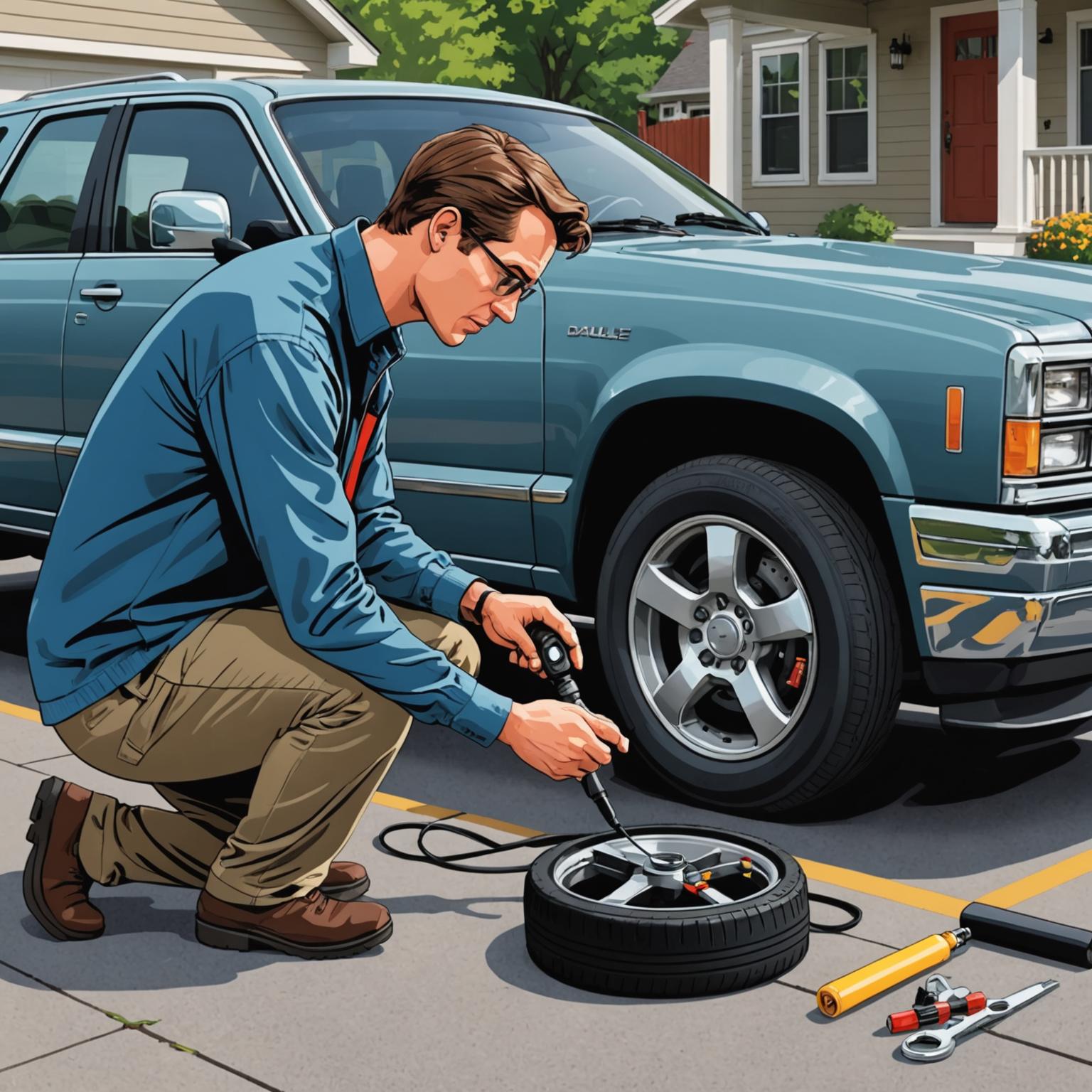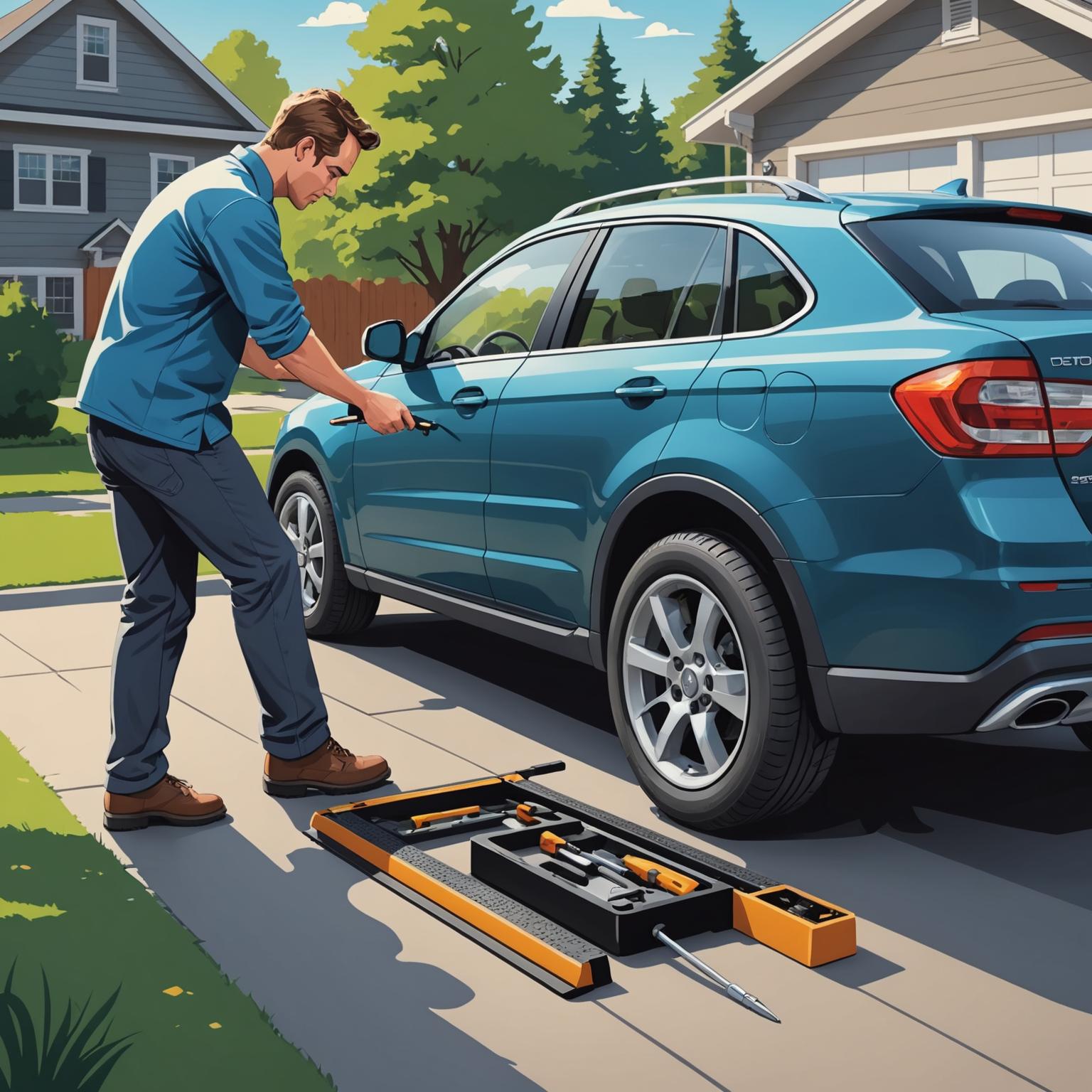Maintaining your vehicle is a responsibility that directly impacts your safety, fuel budget, and the longevity of your car. While many drivers focus on oil changes and engine checks, one of the most critical yet often overlooked aspects of car care is maintaining proper tire pressure. A reliable tire inflator is an indispensable tool that empowers every car owner to manage this task easily and efficiently, offering a level of convenience and accuracy that public air pumps at gas stations often lack. Investing in this simple device can save you time, money, and provide invaluable peace of mind on every journey.
Understanding Tire Pressure and Its Importance
Tire pressure, measured in Pounds per Square Inch (PSI), is the amount of air within your tires. This specific pressure level is not arbitrary; it's carefully calculated by vehicle manufacturers to ensure optimal performance, safety, and efficiency. You can find the recommended PSI for your vehicle on a sticker inside the driver’s side door jamb or in your owner's manual. Driving on improperly inflated tires is a common but dangerous mistake. Under-inflation leads to a host of problems, including a significant decrease in fuel economy as the engine works harder to move the car. It also causes excessive friction and heat, leading to premature and uneven tire wear, and most dangerously, it can compromise handling and increase the risk of a catastrophic blowout. Conversely, over-inflation can create a harsh, bumpy ride, reduce the contact patch of the tire with the road leading to decreased traction, and cause accelerated wear on the center of the tread. Regularly checking your pressure with an accurate tire pressure gauge is the first step in proper tire maintenance. A standalone tire gauge can be a great tool, but many modern inflators come with one built-in for an all-in-one solution.
The Evolution of Tire Inflation: From Manual Pumps to Digital Tools
The task of inflating tires has evolved dramatically over the years. Many of us can recall the laborious effort of using a manual hand or foot pump, a physically demanding and often inaccurate process. The next step was the coin-operated air compressor at the local service station, which, while more convenient, can be unreliable, poorly maintained, and have inaccurate gauges. Today, technology has provided a far superior solution: the modern automobile tire inflator. These compact yet powerful devices are designed specifically for vehicle owners, offering a fast, precise, and user-friendly way to maintain optimal tire pressure from the comfort of your own driveway. They have transformed tire maintenance from a chore into a quick and simple routine.
Choosing the Right Tire Inflator for Your Needs
With a wide variety of models on the market, selecting the right inflator depends on your specific needs. Key features to consider include the power source. Many are 12V DC models that plug directly into your car's cigarette lighter, making them perfect for roadside use. Others may be AC-powered for home garage use or cordless, running on rechargeable batteries for ultimate portability. Another crucial factor is the inflation speed, often measured in CFM (Cubic Feet per Minute), which determines how quickly the device can inflate a tire. For standard cars, a lower CFM is fine, but for larger trucks or RVs, a higher CFM is desirable. Also, consider the maximum PSI capability to ensure it can handle all your vehicles. Perhaps the most user-friendly feature to look for is an automatic shut-off function, which allows you to preset the desired PSI. The inflator will then run and automatically stop once that pressure is reached, eliminating guesswork and preventing over-inflation. The accuracy of the built-in tire gauge is paramount, as this is the feature you'll rely on most.
The Rise of the Digital Tire Inflator
The emergence of the digital tire inflator has been a game-changer for car maintenance. Unlike their analog counterparts with needle gauges that can be difficult to read precisely, digital models feature bright, clear LCD screens that display the exact pressure reading. This removes any ambiguity and ensures a high degree of accuracy. The real advantage of a digital tire inflator lies in its smart functionality. The ability to program the exact target PSI is its most celebrated feature. You simply set the required pressure, turn the unit on, and walk away. The internal sensors monitor the pressure and shut the machine off automatically, guaranteeing a perfect fill every time. Many of these units also come equipped with additional helpful features, such as built-in LED work lights for nighttime emergencies, various nozzle attachments for inflating sports equipment or air mattresses, and even USB ports to charge your electronic devices.
The Convenience of a Portable Tire Inflator
One of the most significant advantages of modern inflators is their compact and lightweight design. A good portable tire inflator is small enough to be stored in the trunk, under a seat, or even in the glove compartment without taking up valuable space. This portability ensures that you are prepared for a low-tire situation wherever you are, whether it's in your garage, at the office, or on a long road trip far from the nearest service station. This immediate access provides a critical layer of security and self-reliance. A portable tire inflator is not just for emergencies; it encourages routine pressure checks, which are essential for maximizing the life of your tires and optimizing fuel efficiency. Its versatility often extends beyond the car, coming with adapters to inflate bicycle tires, basketballs, pool floats, and more, making it a useful tool for the entire household.
How to Use Your Automobile Tire Inflator Correctly
Using an automobile tire inflator is a straightforward process that anyone can master. First, always check your tire pressure when the tires are "cold," meaning the car hasn't been driven for at least a few hours. This ensures an accurate reading. Begin by locating your vehicle's recommended PSI on the door jamb sticker. Next, unscrew the valve cap from one of your tires. Firmly press the inflator’s hose connector onto the valve stem and secure it. Plug the inflator’s power cord into your car’s 12V outlet. Turn your car’s ignition to the "accessory" position to power the outlet. If you have a digital model, set your target PSI. Now, turn the inflator on. The device will be loud, which is normal. It will run until the preset pressure is reached and then shut off automatically. For analog models, you will need to monitor the tire pressure gauge and turn it off manually. Once done, disconnect the hose, replace the valve cap, and repeat the process for the remaining three tires, and don't forget to check your spare.
Conclusion
In today's world of advanced vehicle technology, the simple act of maintaining tire pressure remains a fundamental pillar of road safety and economic driving. Owning a personal automobile tire inflator removes the guesswork and inconvenience from this vital task. It is a small investment that pays huge dividends in the form of improved safety, better fuel mileage, extended tire life, and the confidence that comes with being prepared for the unexpected. No longer a tool just for mechanics, a quality automobile tire inflator is an essential piece of equipment for every responsible driver.

